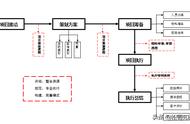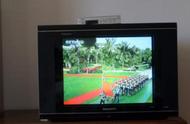The sweater she bought was beautiful rather than cheap. 与其说她买的这件羊毛衫便宜不如说它漂亮。
The ship sank quickly rather than slowly.
船沉得很快,而不是很慢。
He usually gets up early rather than late.
他经常起得早,而不是起得晚。
(3) 连接两个介词(短语)或动词的- ing 形式、过去分词
I’d prefer to read in the library rather than at home.
我宁愿在图书馆看书,也不愿在家里看书。
I’d prefer to do it in this way rather than in that way.
我喜欢这样做,而不愿意那样做。
He went to the park in the evening rather than in the morning.
他喜欢晚上去公园,而不喜欢早上去。
We will have the meeting in the classroom rather than in the great hall. 我们是在教室里开会,不是在大厅里。
She enjoys singing rather than dancing. 她喜欢唱歌,而不喜欢跳舞。
They use opium as a sedative, rather than as a narcotic.
他们把鸦片用作镇静剂而不是毒品。
She likes dancing rather than singing.
她喜欢跳舞,而不喜欢唱歌。

It is snowing rather than raining outside.
外面在下雪,而不是在下雨。
She is laughing rather than crying.
她是在笑,而不是在哭。
He had the house rebuilt rather than repaired.
他宁愿重建房子,而不愿修缮。
(4) 连接两个分句
We should help him rather than he should help us. 是我们应该帮助他而不是他应该帮助我们。
Let's get it over with as soon as possible, rather than drag it out.
我们尽快把它完成吧,不要再拖了。
We should help him rather than he should help us.
我们应该帮助他,而不是他应该帮助我们。
It was what he meant rather than what he said.
那是指他话中的意思,而不是他所说的话。

(5) 连接两个不定式
I decided to write rather than (to) telephone. 我决定写信而不打电话。
注意:rather than 后接不定式时,不定式可以带to,也可以不带to, 如上句。但rather than位于句首时,则只能接不带to 的不定式。如:Rather than allow the vegetables to go bad, he sold them at half price. 他唯恐蔬菜烂掉,把它们以半价卖掉了。
(6) 连接两个动词
Rather than have the radio repaired,he’d like to buy a new one.
与其修理那部收音机,他想还不如买一部新的。
She left rather than stayed at home.
她不是呆在家里,而是走了。
He ran rather than walked. 他是跑来的,而不是走来的。
注意:这里rather than 后用了walked,而没有用walk,表示客观事实,而不是主观愿望。如果换成walk,则作“宁愿……而不愿 ……”解。
Rather than cause trouble,he went away.
他宁可走开而不愿惹麻烦。
He committed suicide rather than face the shame of being linked to the scandal.
他选择了自*,不愿面对牵扯进这桩丑闻所带来的耻辱。
Do you work hard for success rather than daydream about it?
你是否付出艰苦努力以取得成功,而不是只在那里做白日梦?















